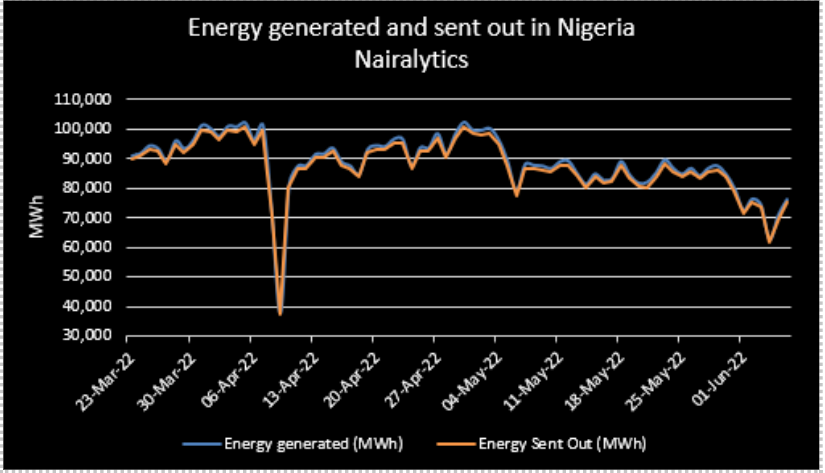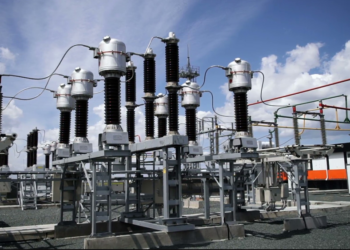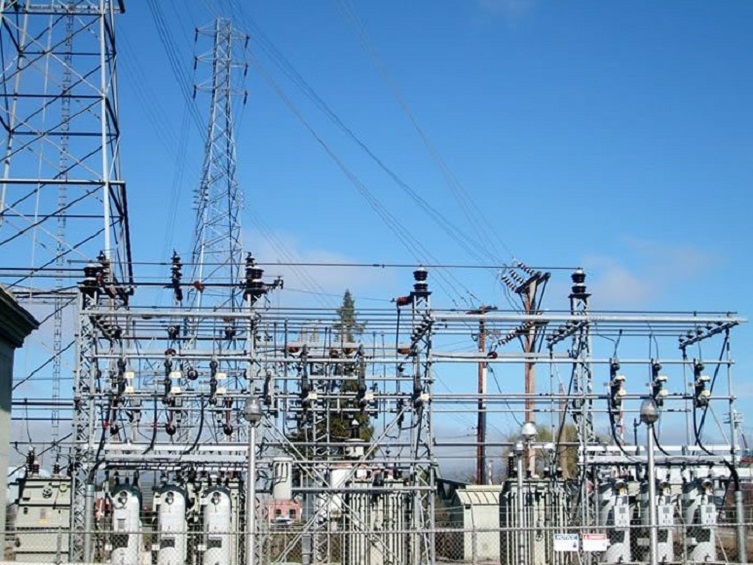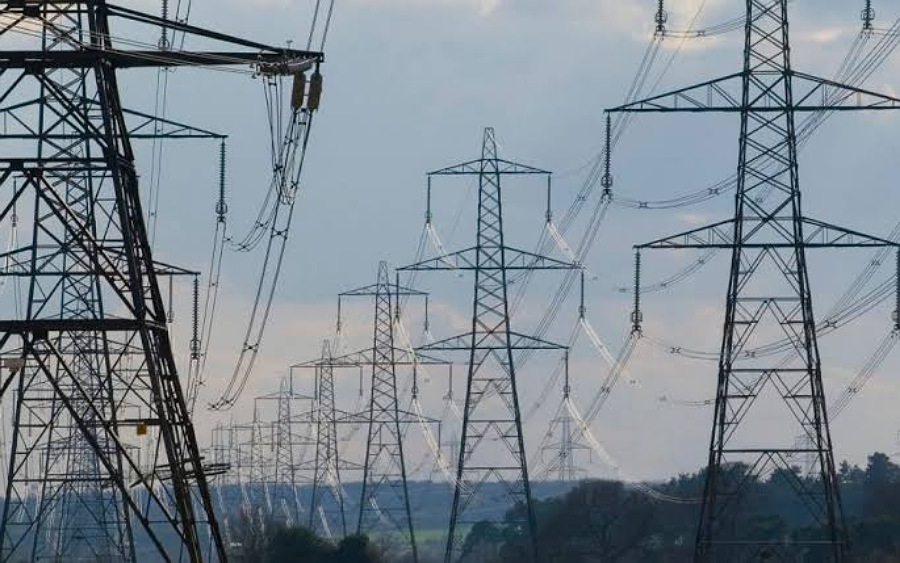Nigeria’s electricity generation rebounded further on Monday, 6th June 2022 following a significant crash recorded in the previous week. Energy generation improved by 7.5% on Monday to 76,297.58MWh compared to 70,943.35MWh generated on Sunday.
This is according to information from the Transmission Company of Nigeria (TCN). In the same vein, energy supply increased by 7.6% to 75,197.46MWh from 69,886.65MWh recorded in the previous day.
Energy generation peaked at 3,409.5MW on Monday, while off-peak was 3,021.7MW. Notably, 98.56% of the generated energy in the day under review was sent out to Distributing Companies.
Power generation and supply had declined by 15.7% on Saturday, falling to its lowest levels since 9th April 2022. Energy generation averaged at 76,983.67MWh between the 29th of May and the 4th of June 2022, lower than the average 86,336.55MWh recorded in the previous week.
Nigeria’s energy generation and supply continue to remain below the minimum 105,000MWh required to record some level of stability in power supply in the country. Nigerians continue to grapple with epileptic power supply as a result of disruptions at the national grip and inability to operate at full capacity.
Highlight (6th June 2022)
- Peak generation – 3,409.5MW (+5%)
- Off-peak generation – 3,021.7MW (+19.5%)
- Energy generated – 76,297.58MWh (+7.5%)
- Energy sent out – 75,197.46MWh (+7.6%)
The highest frequency for the day was 50.87Hz, while the lowest frequency was 49Hz.
The Ministry of Power through a statement issued and signed by the Special Assistant to the Minister of Power on Media, Malam Sanusi on Saturday, attributed the recent electricity dip to the partial shutdown of the Obem gas plant.
Why this matters
Power is an essential need for many Nigerians and their businesses, especially given the surge in the cost of alternative energy amidst the global energy crisis. The cost of power in the country has gone up and is further exacerbated by constant disruption in electricity supply.
Businesses now have to spend a high cost on energy, while others who cannot afford other forms of electricity are forced to endure the epileptic power supply.




















